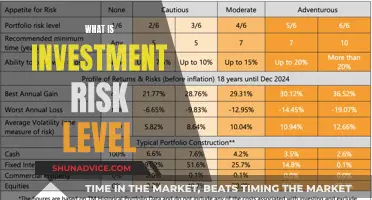
Investment banking is renowned for its lucrative compensation packages, attracting top talent seeking high financial rewards. The question of whether investment bankers make millions is a complex one, as it depends on various factors such as seniority, performance, and the size of deals handled. While not all investment bankers make millions, it is certainly possible for those in senior positions or those involved in high-value transactions.
| Characteristics | Values |
|---|---|
| First-year investment banker salary | $85,000 to $95,000 |
| First-year investment banker total compensation | $200,000+ |
| Associate base salary | $140,000 to $180,000 |
| Vice President & Director base salary | $200,000 to $300,000 |
| Vice President & Director total compensation | $450,000 to $700,000 |
| Managing Director base salary | $400,000 to $600,000 |
| Managing Director total compensation | $1,000,000+ |
| Managing Director bonuses | $0 to several million dollars |
| Top Investment Bankers earnings | Several hundred thousand dollars to tens of millions annually |
What You'll Learn

High-value deals
Investment bankers are involved in high-value deals and transactions, which form the core of their earning potential. They facilitate mergers, acquisitions, and IPOs for corporations, collecting substantial fees for their services. For instance, a merger worth billions can generate fees of millions for the bankers involved.
Take the example of the $66 billion acquisition of Monsanto by Bayer. The investment bankers who orchestrated this deal earned fees surpassing tens of millions. Similarly, in the mega-merger between AT&T and Time Warner, valued at $85 billion, the bankers pocketed tens of millions in fees. These colossal deals showcase the immense financial rewards tied to high-value transactions.
Investment banks earn revenue through various fees and services. They charge underwriting fees for arranging the sale of securities, such as debt or equity, on behalf of their clients. They also provide advisory services, guiding companies through complex financial decisions, and charge advisory fees for their expertise. The fees for these services can be substantial, often ranging from 1-2% of the total deal value.
In addition to fees, investment bankers also earn performance-based bonuses linked to the success of the deals they complete. These bonuses can significantly increase their overall compensation. For example, a successful deal worth $1.8 billion can result in bonuses allocated to senior bankers, contributing to their high total compensation.
The compensation structure in investment banking is performance-driven, with bonuses tied to individual and team performance, deal success, and the financial health of the firm. Top-performing bankers can earn bonuses that surpass their base salaries, sometimes by several times. This performance-linked bonus structure further emphasizes the impact of high-value deals on an investment banker's earnings.
Savings and Investments: Strategies for Success in Lean Times
You may want to see also

Advisory services
Investment bankers provide advisory services to companies, helping them navigate complex financial decisions and transactions. These services are critical for the functioning of businesses and the global economy.
M&A advisory is a demanding career path, often requiring work weeks exceeding 100 hours. It demands strong financial analysis and valuation skills, as well as the ability to conduct due diligence. Negotiation skills are crucial, and bankers must have excellent communication and interpersonal skills to manage relationships with clients, potential buyers or sellers, lawyers, accountants, and other stakeholders.
In addition to M&A, investment bankers also advise on other significant financial transactions, such as initial public offerings (IPOs), debt issuances, and restructuring. They help companies raise capital, whether through debt or equity underwriting, and guide them through the process of becoming a public company.
The fees for advisory services can be substantial, with investment banks earning millions of dollars in commissions. For example, Goldman Sachs' advisory role in the Alibaba IPO raked in fees exceeding $300 million. The performance-based bonus structure in investment banking means that bankers can earn bonuses that surpass their base salaries, contingent on the success of the deals they complete.
UK Investors Guide: Investing in India's Market
You may want to see also

Performance-linked bonuses
Investment banking is a lucrative industry, with a compensation package that typically consists of a base salary and year-end bonus. The end-of-year bonus is a key component of investment banking pay structures and is performance-based. This bonus is tied to individual performance, deal flow, and the bank's profitability. For most banks, it amounts to 50% to 100% of an analyst’s base salary.
The incentive systems tie pay to performance, with some companies tying pay to individual performance and others doing the opposite. A performance-based bonus is an extra compensation given to an employee when they reach pre-established goals. Performance bonuses can be given to employees after evaluating their work performance.
Sales incentives are also created by banks to encourage staff to sell more financial products, although these may not always consider the needs of customers.
Debenture Investment Guide for Indians: A Secure Option
You may want to see also

Prestige and demand
Investment banking is a prestigious profession, renowned for its high-earning potential and allure for ambitious individuals seeking financial success and professional accomplishment. The demand for specialised skills in this field is high, driving up compensation packages and making it a lucrative career choice.
The prestige associated with investment banking stems from the nature of the work, which involves facilitating high-value deals and providing expert financial advice. Investment bankers play a pivotal role in orchestrating mergers, acquisitions, and IPOs, collecting substantial fees in the process. For example, a merger or acquisition worth billions can generate fees of millions for the bankers involved. The advisory services they provide are invaluable to companies navigating complex financial decisions, and their expertise in capital raising, risk management, and market analysis is highly sought after.
The demand for individuals with specialised financial skills in investment banking is high. These professionals need strong analytical capabilities and the ability to thrive in high-pressure environments. Their work involves complex financial manoeuvres, high-stakes transactions, and critical services for the functioning of businesses and the global economy. Top-tier investment banks compete fiercely to attract and retain this top talent, resulting in lucrative offers and elevated earning potentials.
The compensation structure in investment banking is performance-linked, with bonuses tied to individual and team performance, deal success, and the financial health of the firm. This performance-based model incentivises bankers and rewards them handsomely for successful deals. The potential for substantial financial rewards is a significant draw for individuals considering a career in investment banking.
While the majority of professionals in the field earn more modest salaries, the potential for million-dollar earnings at prominent investment banks is a powerful incentive. The combination of prestige, demand for specialised skills, and lucrative compensation packages makes investment banking a highly desirable and prestigious career choice.
Unlocking Private Equity Investment: A Guide to Getting Started
You may want to see also

Compensation structure
The compensation structure for investment bankers is performance-based. Their compensation is tied to individual and team performance, deal success, and the financial health of the firm. Investment bankers are involved in high-value deals and transactions, such as mergers, acquisitions, and IPOs, for which they receive substantial fees. The larger the deal, the larger the fee. For example, a merger worth billions can generate fees amounting to millions for the bankers involved.
Investment bankers also provide advisory services to companies, guiding them through complex financial decisions. Their expertise in areas such as capital raising, risk management, and market analysis commands significant compensation. In some cases, advisory fees can be as high as 1-2% of the deal value.
The performance-based structure means that top-performing bankers can earn bonuses that far exceed their base salaries. For example, managing directors at leading investment banks can receive bonuses of up to several million dollars, contingent on their contribution to the firm's profitability.
The compensation structure in investment banking is designed to attract and retain top talent, resulting in lucrative offers and elevated earning potentials. However, it is important to note that the majority of professionals in the field earn more modest salaries, and the high-earning individuals represent the pinnacle of a pyramid.
Coca-Cola India: A Guide to Investing in the Beverage Giant
You may want to see also
Frequently asked questions
No, only senior investment bankers make millions. Directors, principals, and partners lead teams that work with high-priced items and make big commissions. A deal worth more than $1 billion might come with a 0.1% commission, which is still $50 million on a $50 billion deal.
The general salary compensation range for a first-year investment banker is $85-95k. This gets bumped up with signing bonuses ($5-15k), stub bonuses ($20-30k) and end-of-year bonuses (70-80% of the base salary). An associate base salary in the US can increase to $140-180k as they climb the corporate ladder.
Investment bankers make money through the fees charged to their clients. This includes underwriting fees for arranging the sale of securities and advisory fees for providing strategic guidance. Investment bankers also earn performance-based bonuses.







